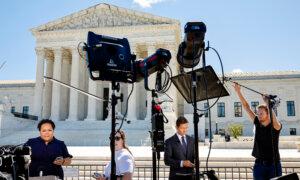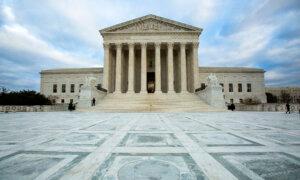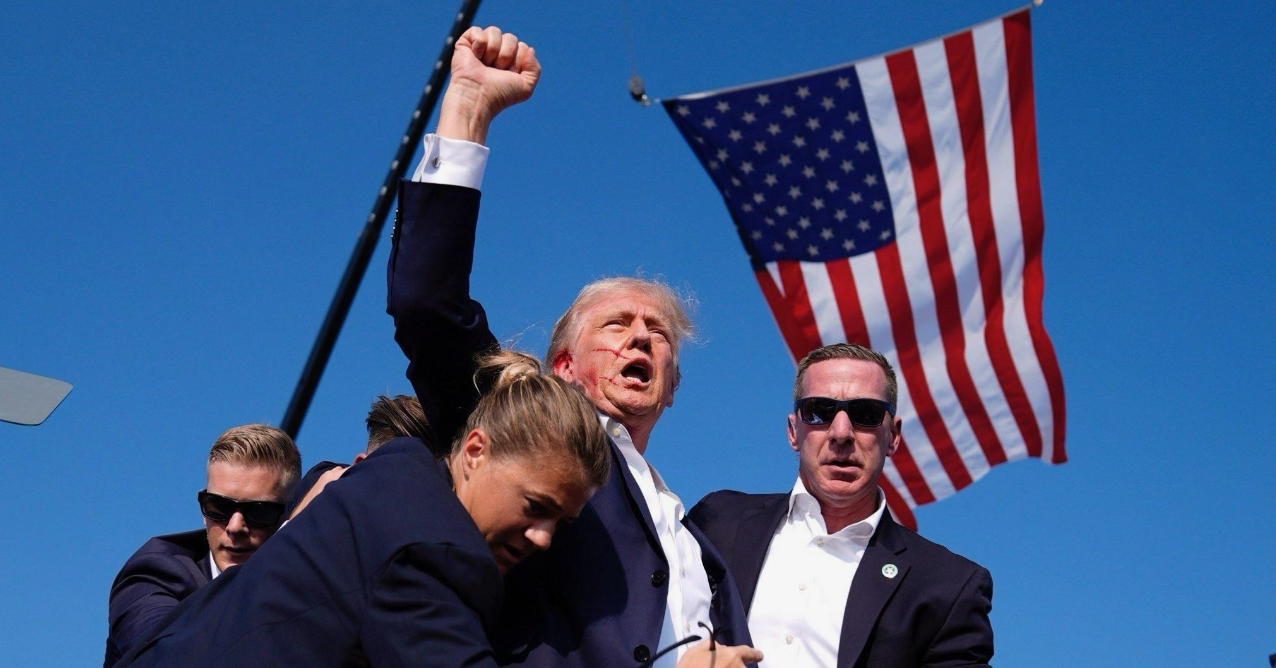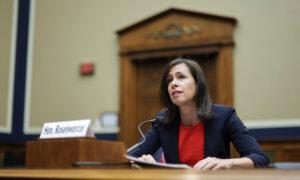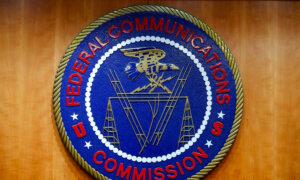Wednesday, July 31, 2024
Tuesday, July 30, 2024
Monday, July 29, 2024
Biden Proposes Plan to Reform Supreme Court
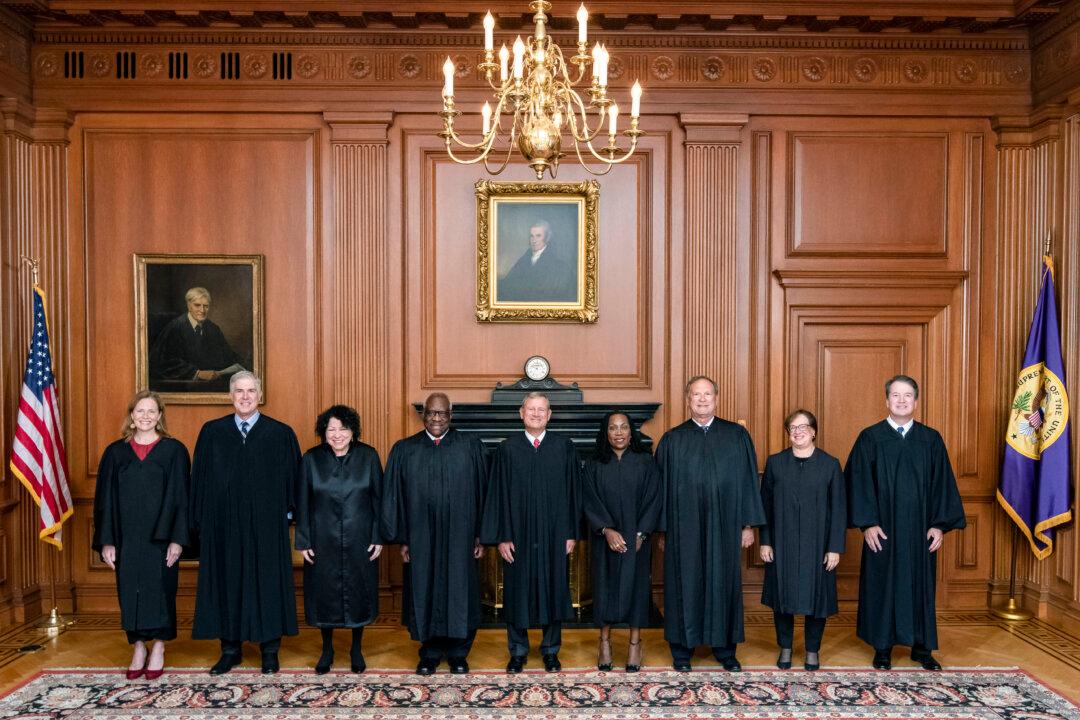
President Joe Biden called for Congress to back his proposals for two significant changes to the U.S. Supreme Court and a change to the U.S. Constitution.
In an op-ed published on the morning of July 29, the president outlined his reasoning for pursuing changes that have long been sought by progressive camps.
According to a White House official, President Biden will call for Congress to back term limits for Supreme Court justices and a code of ethics enforceable by the legislative branch.
He also will propose an amendment to limit the extent of presidential immunity afforded by the Constitution, proposing that former presidents be granted no immunity for crimes committed while in office.
Citing his 36 years as a U.S. senator and former chairman and ranking member of the Judiciary Committee, President Biden said that while he has “great respect for our institutions and separation of powers,” what is happening now in the United States is “not normal, and it undermines the public’s confidence in the court’s decisions, including those impacting personal freedoms.”
“We now stand in a breach,” the president wrote.
In recent years, the Supreme Court released some decisions that sparked criticism from Democrats and progressives, including its overturning of Roe v. Wade and, more recently, its 6–3 ruling that presidents and former presidents are, in principle, immune from prosecution for official acts.
Today, the president made clear his resolve to dedicate time during his last five months in office to back changes that he says can restore trust and accountability in both the Supreme Court and the presidency, a White House official told The Epoch Times.
The announcement was made a week after President Biden withdrew from the 2024 presidential race and endorsed Vice President Kamala Harris.
In 2020, as a presidential candidate, he promised to create a commission to study potential changes to the Supreme Court as progressives called for the expansion of the Supreme Court. The commission published a 294-page report to the president in December 2021. President Biden has not acted on that report until now.
The president is scheduled to speak on Monday about his plan, from the LBJ Presidential Library, while commemorating the 60th anniversary of the Civil Rights Act.
The move is the first significant effort by a president since Franklin D. Roosevelt’s progressive court-packing plan to advocate changes to the workings of the Supreme Court. President Roosevelt’s push for a more favorable court ultimately failed in the face of significant opposition.
President Biden’s proposal follows years of progressive advocacy to push their preferred reforms on the judicial branch, which has met resistance from those who hold originalist views widely preferred within the GOP.
The White House says that term limits for Supreme Court justices would help ensure that the timing of court nominations is more predictable and less arbitrary, reducing the chance that any single presidency is advantaged by the retirement times of justices.
Additionally, a binding code of conduct for justices, including the disclosure of gifts, refraining from public political activity, and recusal from cases with conflicts of interest, would improve public trust in the institution, the White House said.
Critics of the code of conduct have expressed concern that oversight of justices by Congress would politicize the court.
For President Biden to be successful, his proposals would require 60 votes for passages in the Senate. His proposed constitutional amendment faces additional hurdles, including two-thirds support in both chambers of Congress, or by a convention of two-thirds of the states, and then approval by three-fourths of state legislatures.
Former President Donald Trump previously wrote on Truth Social of such efforts in the legislative branch: “The Democrats are attempting to interfere in the Presidential Election, and destroy our Justice System, by attacking their Political Opponent, ME, and our Honorable Supreme Court. We have to fight for our Fair and Independent Courts, and protect our Country.”
The former president also warned that any removal of presidential immunity for official acts of former presidents would risk politicizing prosecutions and undermine the office of the president.
Wednesday, July 24, 2024
Tuesday, July 23, 2024
Friday, July 19, 2024
Wednesday, July 17, 2024
Biden administration considers expanding Alaskan oil and gas drilling ban

(WO) – On July 12, the Bureau of Land Management (BLM) announced it is seeking public opinion on whether or not to expand so-called “protected” areas in Alaska’s National Petroleum Reserve (NPR-A). If enacted, the measure would expand on the Biden administration’s recent ban on new oil and gas drilling projects in the region.
BLM is looking for input on whether to add additional protection measures by identifying additional significant resource values in existing Special Areas, expanding Special Areas, or creating new Special Areas within the NPR-A, according to an online statement.
Under the Naval Petroleum Reserves Production Act (NPRPA) of 1976, BLM is required to “balance” oil and gas development with protected “special areas” in Alaska. According to BLM, “the final rule updates the existing regulatory framework, adopted more than 40 years ago, allowing the BLM to respond more effectively to changing conditions in the NPR-A."
In April 2024, the Biden administration formally limited oil and gas drilling across 13 million acres of the 23-million-acre NPR-A. Leasing is also blocked 10.6 million acres. The move has brought wide condemnation from the oil and gas industry on concerns over harnessing U.S. resources to improve energy security at a time of geopolitical uncertainty.
The region is suspected to hold close to 9 Bbbl of recoverable resources. Earlier this month, ConocoPhillips sued the Biden administration over it’s Alaskan drilling ban. The company operated nearly 2 million acres in the state.
The commentary period will last for 60 days.
Tuesday, July 16, 2024
BREAKING NEWS: ExxonMobil unveils 30-well drilling campaign for seventh oil and gas project offshore Guyana

(WO) – Reuters has reported that ExxonMobil is planning a potential 30-well drilling campaign for its seventh oil and gas project offshore Guyana, named Hammerhead.
Hammerhead aims to start production in 2029, boosting Guyana's oil production capacity to over 1.4 MMbpd.
Exxon, along with partners Hess Corp and China's CNOOC, expects Hammerhead to produce between 120,000 and 180,000 bpd, which is less than the 250,000 bpd from its largest vessels offshore Guyana.
The project will include a floating production unit, converted from a Very Large Crude Carrier (VLCC), capable of storing 1.4 to 2 MMboe. This unit will be located 15 km (9 miles) southwest of Exxon's Liza Destiny vessel.
According to ExxonMobil’s website, Hammerhead was discovered in August 2018. Hammerhead is ExxonMobil’s ninth oil discovery in the prolific Stabroek Block offshore Guyana.
This story was originally reported by Reuters.
Monday, July 15, 2024
FDNY Commissioner Laura Kavanagh announces resignation
https://www.yahoo.com/news/fdny-commissioner-laura-kavanagh-announces-202525856.html
NEW YORK CITY - Laura Kavanagh announced on Saturday she would be stepping down as commissioner.
Kavanagh said in an email she is going to pursue other opportunities.
Mayor Adams appointed Kavanagh in 2022.
A separate statement from Adams shared with Fox News Digital bolstered that claim, saying the city "respects her decision."
"Commissioner Kavanagh has dedicated her life to keeping New Yorkers safe and while we’ve made it clear that she could have kept this position for as long as she wanted, we respect her decision to take the next step in her career," Adams said.
She was the first female commissioner in the 159-year history of the FDNY.
Kavanagh has come under fire of late, with criticism coming from both inside and outside FDNY walls.
Most
recently, Kavanagh was jeered while marching in the annual NYC St.
Patrick's Day parade in March, after she promised to "hunt" down
protesting firefighters who booed Attorney General Letitia James during an FDNY ceremony a week before the parade.
In 2023, she was hit with an age discrimination lawsuit that alleged she targeted older top FDNY staffers with demotions, retaliation and forced retirements.
Several high-level staffers in their late 50s and early 60s sued Kavanagh for unspecified damages, back pay and the return of job titles under the state’s human rights laws, according to a 53-page lawsuit filed in the Brooklyn state Supreme Court first published by the New York Post.
The lawsuit claimed staff members were forced to work in a hostile and retaliatory work environment.
"While the decision I have made over the last month has been a hard one, I’m confident that it is time for me to pass the torch to the next leader of the finest Fire Department in the world," Kavanagh said in her resignation statement.
"I look forward to spending the next several months assisting the department’s transition in leadership, before embarking on my next professional challenge. Thank you Mayor Adams for the opportunity you gave me and for your continued support of me and the FDNY," she added.
"It has been the honor of a lifetime to devote the last 10 years — five as first deputy commissioner and more than two as commissioner — to advocating for the men and women of the FDNY."
Kavanagh says she will stay on the job while they find her a replacement.
Fox News Digital's Andrew Mark Miller and Andrea Vachianno contributed to this report.
Friday, July 12, 2024
AT&T says criminals stole phone records of ‘nearly all’ customers in new data breach

https://techcrunch.com/2024/07/12/att-phone-records-stolen-data-breach/
U.S. phone giant AT&T confirmed Friday it will begin notifying millions of consumers about a fresh data breach that allowed cybercriminals to steal the phone records of “nearly all” of its customers, a company spokesperson told TechCrunch.
In a statement, AT&T said that the stolen data contains phone numbers of both cellular and landline customers, as well as AT&T records of calls and text messages — such as who contacted who by phone or text — during a six-month period between May 1, 2022 and October 31, 2022.
AT&T said some of the stolen data includes more recent records from January 2, 2023 for a smaller but unspecified number of customers.
The stolen data also includes call records of customers with phone service from other cell carriers that rely on AT&T’s network, the company said.
AT&T said the stolen data “does not contain the content of calls or texts,” but does include calling and texting records that an AT&T phone number interacted with during the six-month period, as well as the total count of a customer’s calls and texts, and call durations — information that is often referred to as metadata. The stolen data does not include the time or date of calls or texts, AT&T said.
Some of the stolen records include cell site identification numbers associated with phone calls and text messages, information that can be used to determine the approximate location of where a call was made or text message sent.
In all, the phone giant said it will notify around 110 million AT&T customers of the data breach, company spokesperson Andrea Huguely told TechCrunch.
AT&T published a website with information for customers about the data incident. AT&T also disclosed the data breach in a filing with regulators before the market opened on Friday.
Breach linked to Snowflake
AT&T said it learned of the data breach on April 19, and that it was unrelated to its earlier security incident in March.
AT&T’s Huguely told TechCrunch that the most recent compromise of customer records were stolen from the cloud data giant Snowflake during a recent spate of data thefts targeting Snowflake’s customers.
Snowflake allows its corporate customers, like tech companies and telcos, to analyze huge amounts of customer data in the cloud. It’s not clear for what reason AT&T was storing customer data in Snowflake, and the spokesperson would not say.
AT&T is the latest company in recent weeks to confirm it had data stolen from Snowflake, following Ticketmaster and LendingTree subsidiary QuoteWizard, and others.
Snowflake blamed the data thefts on its customers for not using multi-factor authentication to secure their Snowflake accounts, a security feature that the cloud data giant did not enforce or require its customers to use.
Cybersecurity incident response firm Mandiant, which Snowflake called in to help with notifying customers, later said about 165 Snowflake customers had a “significant volume of data” stolen from their customer accounts.
Mandiant attributed the breach to an as-yet-uncategorized cybercriminal group tracked only as UNC5537. Mandiant’s researchers say the hackers are financially motivated and have members in North America and at least one member in Turkey.
Some of the other corporate victims of the Snowflake account thefts had data subsequently published on known cybercrime forums. For AT&T’s part, the company said that it does not believe that the data is publicly available at this time.
AT&T’s statement said it was working with law enforcement to arrest the cybercriminals involved in the breach. AT&T said that “at least one person has been apprehended.” AT&T’s spokesperson said that the arrested individual was not an AT&T employee, but deferred questions about the alleged criminals to the FBI.
An FBI spokesperson confirmed to TechCrunch on Friday that after the phone giant contacted the agency to report the breach, AT&T, the FBI and the Department of Justice agreed to delay notifying the public and customers on two occasions, citing “potential risks to national security and/or public safety.”
“AT&T, FBI, and DOJ worked collaboratively through the first and second delay process, all while sharing key threat intelligence to bolster FBI investigative equities and to assist AT&T’s incident response work,” the FBI spokesperson said.
The FBI did not comment on the arrest of one of the alleged cybercriminals.
This is the second security incident AT&T has disclosed this year. AT&T was forced to reset the account passcodes of millions of its customers after a cache of customer account information — including encrypted passcodes for accessing AT&T customer accounts — was published on a cybercrime forum. A security researcher told TechCrunch at the time that the encrypted passcodes could be easily decrypted, prompting AT&T to take precautionary action to protect customer accounts
Thursday, July 11, 2024
ConocoPhillips sues over Biden’s oil and gas drilling ban in Alaska

Bloomberg) – ConocoPhillips sued to block a Biden administration ban on drilling across nearly half the National Petroleum Reserve in Alaska, claiming the measure violates a federal law that compels oil development there.
The lawsuit filed Friday takes aim at an Interior Department rule that explicitly bars oil leasing on 10.6 million acres (4.3 million hectares) of the 23-million-acre reserve, while restricting future oil development in 13 million acres designated as “special areas.”
The case will test one of President Joe Biden’s biggest moves to limit oil development on federal land, amid appeals by climate activists who claim it’s incompatible with a warming world.
Oil industry advocates that hold leases in the reserve say the Bureau of Land Management regulation unlawfully strangles development in territory set aside as a source of energy for the Navy a century ago.
The regulation will apply to existing leases within the area, though it won’t alter the terms of those contracts or directly affect currently authorized activities, such as ConocoPhillips’ 600 MMbbl Willow project.
Nonetheless, the rule could have wide effects for companies with leases in the reserve. ConocoPhillips’ Alaska unit holds 1.8 million acres of state and federal leases in the state, including 1 million net undeveloped acres as of year-end 2023, the company said in its filing.
In establishing the reserve, Congress said it should be used for “expeditious production of oil to meet the nation’s energy needs,” ConocoPhillips said in its lawsuit, filed in a federal court in Alaska. The reserve contains an estimated 8.7 billion barrels of recoverable oil, according to a 2017 assessment by the US Geological Survey.
Congress “plainly did not authorize BLM to promulgate sweeping regulations that thwart and prevent the production of petroleum throughout the NPR-A,” ConocoPhillips said. Yet, the rule contains “numerous new provisions that elevate resource preservation over energy production and effectively turn the petroleum reserve into a de facto wilderness area in which development is outright prohibited.”
The case joins earlier challenges filed by the Voice of the Arctic Iñupiat that represents North Alaska communities, the state of Alaska and oil companies North Slope Exploration LLC and North Slope Energy LLC, which together hold leases spanning more than 552,000 acres in the reserve.
The case is ConocoPhillips v. Department of Interior, 24-cv-00142, US District Court, District of Alaska.
Gold price tops $2,400 again on signs of cooling inflation

https://www.mining.com/gold-price-tops-2400-again-on-signs-of-cooling-inflation/
Gold has once again crossed the $2,400-an-ounce mark to close in on another record after an unexpected drop in US consumer prices bolstered hopes of a Federal Reserve interest rate cut in September.
Spot gold jumped 2.0% to $2,418.78 an ounce by 9:10 a.m. ET Thursday, for its highest in almost two months. US gold futures were up 1.6% at $2,419 an ounce in New York.
Sign Up for the Precious Metals Digest
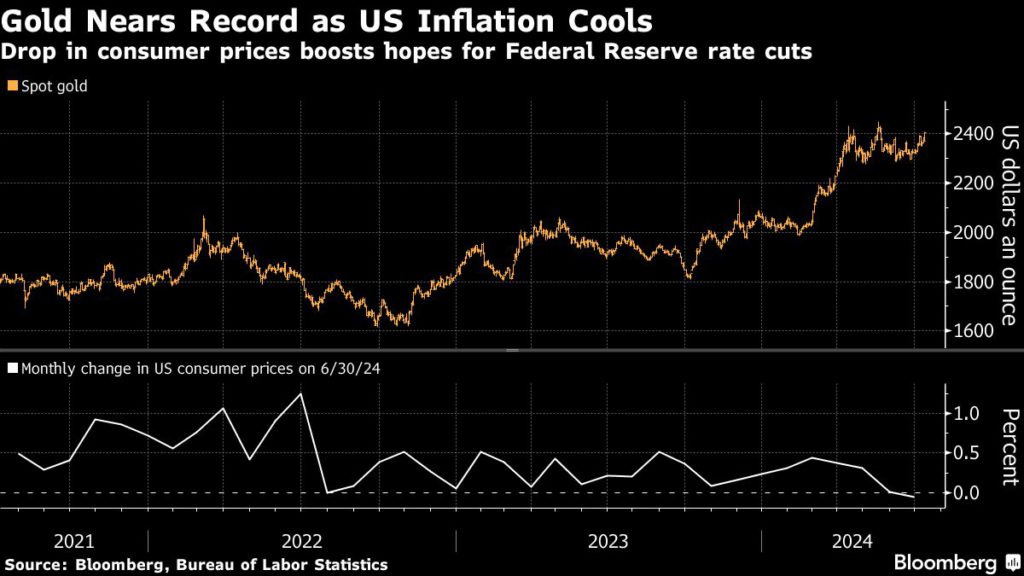
The rally comes on the back of new US data showing a 0.1% monthly decline in consumer prices, marking the first negative reading in over four years. Another key core price gauge that excludes food and energy advanced only 0.1% in June, further supporting the case for a Fed rate cut.
The figures indicate that inflation has resumed its downward trend after a flare up at the start of the year, while broader economic activity appears to be slowing. Earlier, Federal Reserve Chair Jerome Powell said the central bank doesn’t need inflation below 2% before cutting rates.
High rates have been a headwind for gold as a non-interest-bearing asset, but prices have still hit record highs this year on a wave of buying by investors and central banks. Thursday’s rally brought the precious metal into striking distance of the all-time high of $2,450.07 set in May.
“Below-expected inflation data is compounding the precious metals rally,” Ryan Mckay, a senior commodity strategist at TD Securities, said in an emailed note. “A key macro cohort that has been on the sidelines thus far is increasingly likely to regain interest in gold.”
(With files from Bloomberg)
BREAKING NEWS: FTC to delay $53 billion Chevron-Hess deal until after ExxonMobil arbitration over assets offshore Guyana

(Bloomberg) – The U.S. Federal Trade Commission plans to delay its decision whether to block Chevron Corp.’s $53 billion takeover of Hess Corp. until after an arbitration case with Exxon Mobil Corp. is settled, according to people familiar with the matter.
The case with Exxon, which claims to have a right of first refusal over Hess’s biggest asset offshore Guyana, will likely take at least until the fourth quarter, meaning the FTC’s review will extend several more months. The agency plans to announce its decision when the arbitration is finished, said the people, who asked not to be named discussing an internal agency matter.
The delay is yet another blow to the embattled deal, which is still far from completion nearly nine months after it was announced in October. The agency has made second requests for information for several large deals in the oil and gas sector this year.
Chevron and the FTC declined to comment. Chevron previously has said it expected to have finished responding to the FTC’s in-depth request for information by mid-year.
“We continue to expect to complete the FTC review process during the third quarter,” Hess said in a statement.
Unless companies have an explicit timing agreement with the FTC, the agency has discretion on when to announce its decisions.
Shares of both companies fell on the news, pairing earlier gains. Hess was up 0.4% at 11:40 a.m., after earlier being up as much as 1.1% Chevron shares were up 0.6%, after rising 1% earlier.
The FTC allowed Exxon’s takeover of Pioneer Natural Resources Co. to move forward after alleging Scott Sheffield, Pioneer’s founder and former CEO, colluded with OPEC officials and blocked him from serving on the Texas oil giant’s board. Sheffield rejected the claims.
Chevron’s agreement to buy Hess, its biggest deal in two decades, has faced several hurdles, leaving both companies in strategic limbo.
In March, Exxon, which discovered and operates Guyana’s Stabroek Block, accused Chevron of attempting to “circumvent” its right to buy Hess’s 30% stake in the 11 Bbbl offshore oil field. Chevron and Hess rejected the charge, saying Exxon’s right doesn’t apply because the deal is structured as a corporate takeover rather than an asset sale.
But the case went to arbitration at the International Chamber of Commerce, a process that could take until the fourth quarter at the earliest. Exxon’s CEO Darren Woods has warned it could take longer.
In May, Hess investors approved the Chevron takeover by a razor-thin majority of 51% after several large shareholders and Institutional Shareholder Services Inc. argued the vote should be delayed until after the arbitration case. The investors expressed concern that they would not receive Chevron dividends until the deal is complete, eroding the value of the transaction.
Wednesday, July 10, 2024
Codelco eyes 10% stake in Teck’s Quebrada Blanca copper mine

https://www.mining.com/codelco-eyes-10-stake-in-tecks-quebrada-blanca-copper-mine/
Chile’s copper giant Codelco is considering taking a 10% stake in Teck’s (TSX: TECK.A, TECK.B)(NYSE: TECK) Quebrada Blanca copper mine, currently held by state mining firm Enami, in a deal valued at about $500 million.
The potential acquisition will make strategic sense for both companies, local paper La Tercera reported on Tuesday, as Codelco would get a hold of a new, massive and long-life copper asset, while Enami could improve its balance sheet and finally be able to partly finance a new smelter.
Sign Up for the Copper Digest
Enami’s stake in Quebrada Blanca (QB) is a minority, but it possesses a unique characteristic that sets it apart from other shareholders: it is non-dilutable. This means that even in the event of capital increases subscribed by other shareholders, the state-owned miner retains its ownership. This stake is comprised of series B shares, which also entitles Enami to a preferred dividend. Bonus: it is not required to finance capital expenditures.
“We cannot provide information on this matter because it is under a confidentiality clause,” Enami, which groups small and medium mining projects in the country, told La Tercera.
The state-mining company recorded losses of $200 million in 2023, more than double the $78 million loss it logged in 2022. The miner estimated the value of its investment in QB in slightly over $323 million, according to its 2023 financial statement.
Enami’s problems have not disappeared — it currently is facing financial difficulties, as its Paipote smelter in the northern province of Atacama remains halted due to pending renovations.
Newly expanded, low-cost prize
The QB mine is located in northern Chile at an elevation of 4,400 metres, about 240 km southeast of the city of Iquique and 1,500 km from capital Santiago.
It began production in 1994, as an open pit copper operation, with Teck, Canada’s largest diversified miner and current majority owner, entering in 2007.
Teck saw its overall copper production jump by 74% in the first three months of the year, thanks mainly to the ramp up of the QB extension in Chile.
The Vancouver-based miner churned out 99,000 tonnes in the first quarter, with QB producing 43,300 tonnes. QB2, as the new area of the mine is known, began production three years after originally planned, due to weather and covid-19- related construction disruptions. In the process, the key growth project saw costs balloon and ended up coming in at $4 billion over budget.
Codelco’s track record of alliances with private entities is extensive. It holds a 49% stake in El Abra through a partnership with Freeport-McMoRan and owns 20% of Anglo American Sur, which operates the Los Bronces and El Soldado mines, as well as the Chagres smelter.
Late last year, Codelco entered into a second agreement with Rio Tinto (ASX, LON: RIO) for the Agua de la Falda SA project in the Atacama Region, securing a 42.26% share.
It has also ventured beyond copper through a joint venture with SQM (NYSE: SQM) to exploit the world’s largest lithium deposit in the Atacama salt flat, a project slated to begin in 2025, with Codelco taking control in 2031.
The Chilean miner bought up Australia’s Lithium Power International in January,
which gave it the Maricunga lithium project, located on the namesake
salt flat, which is Chile’s second largest salt-encrusted field in terms
of reserves of the battery metal.
Monday, July 8, 2024
RANKED: World’s top 10 gold mining companies

https://www.mining.com/ranked-worlds-top-10-gold-mining-companies/
Gold has re-emerged as one of the top asset classes of 2024, having risen by 12% year to date and shattered multiple records along the way. It is now well on track for its best year since 2020.
The yellow metal has largely benefited from the heightened uncertainty in the global economy, namely recession fears and geopolitical risks, which in turn are driving up demand.
Sign Up for the Precious Metals Digest
In light of its rising significance as a safe haven asset, gold’s supply must also keep pace with the demand. The world’s production of gold has steadily gone up over the last four years, according to the World Gold Council.
Most of the gold production comes from a small number of companies that have been in the mining business for decades. Below, we list out the top 10 gold mining companies in the world based on their 2023 outputs*:
* Production figures are based on company press releases for the full-year ending December, 31, 2023, with the exception of Navoi Mining and Metallurgical Company.
1. Newmont
Production: 5.5 million oz.
Despite an 8% decline in output from 2022, Newmont remains the top gold producer with 5.5 million oz. across its global operations, which span four continents.
The Denver, Colorado-based company cemented its position as the world’s biggest gold miner last year with its $17 billion acquisition of Newcrest Mining. The deal gave Newmont a much bigger presence in Australia and Canada, adding two major operations in each country.
Recently, Newmont was named by TIME magazine as the best-performing mining company in terms of decarbonization.
2. Barrick Gold
Production: 4.05 million oz.
Barrick’s 2023 production of 4.05 million oz. also fell below the previous year’s (-2.1%) and was slightly short of its forecast as well as analyst expectations.
In response to rival Newmont’s big move, Barrick CEO has repeated shot down the idea of making any big acquisitions, and instead, the company will focus on organic growth, with expansions being lined up at its operations in the Dominican Republic and Nevada.
The Toronto-based miner is also reportedly close to selling a stake in its other growth project, the Reko Diq in Pakistan, to Saudi Arabia.
3. Agnico Eagle
Production: 3.44 million oz.
In contrast to the ‘Big 2’, Agnico’s production grew nearly 10% thanks to its purchase of the remaining stake in the Canadian Malartic, Canada’s biggest open-pit mine, and a full year of production from mines acquired from Kirkland Lake Gold in 2022.
In addition to consolidating its production in Canada, Agnico has also been investing in growth projects in Finland, where it operates Europe’s largest primary gold producer at Kittila.
4. Navoi (NMMC)
Production: 2.9 million oz.
Navoi Mining and Metallurgical Company (NMMC) is the biggest industrial enterprise in Uzbekistan with a rich history of gold production.
While NMMC reports annual production on currency volume, according to information released by S&P Global, its 2023 production totalled 2.9 million oz., enough to maintain Top 4 producer status.
5. Polyus
Production: 2.9 million oz.
Polyus saw its production rise 14% in 2023 to 2.9 million oz., consisting of 2.48 million oz. in refined gold and the rest in flotation concentrate.
Like many other Russian enterprises, the Moscow-based gold company was hit with Western sanctions last year, forcing it to wind down its mining operations.
6. AngloGold
Production: 2.59 million oz.
AngloGold Ashanti’s production fell 3% year-on-year in 2023 due to fewer tonnes of ore processed and lower ore grades. Equipment failure at one of its Ghanaian operations also contributed to the output decline.
In 2024, the Johannesburg-based gold miner is maintaining an output target of 2.79 million oz. despite flooding in Australia.
7. Gold Fields
Production: 2.3 million oz.
Gold Fields once again trailed its South African rival with production of 2.3 million oz. in 2023, down 4% from the year before.
Towards the end of the year, the company sold a 45% stake in the Asanko gold mine in Ghana to joint venture partner Galiano Gold. However, the loss of production there would be offset by its new $1 billion Salares Norte mine in Chile, which poured its first gold in April after years of delays.
Gold Fields and AngloGold Ashanti were previously rumored to be in merger talks, but that has now been ruled out after the companies entered a joint venture in Ghana last March.
8. Zijin
Production: 2.17 million oz.
Zijin Mining is coming off a 20% year-on-year gold production growth, positioning itself as the No.1 listed gold mining company in China and among the top 8 globally.
It has been reported that the group is still “actively looking” to bolster its production profile through acquisitions as it had done in the past, but valuations and geopolitics have slowed down that strategy in recent years.
9. Kinross
Production: 2.15 million oz.
In 2023, Kinross produced 2.15 million oz. in gold equivalent (including silver converted into gold), nearly 10% higher than in 2022. The Canadian miner is about to add a new source of production, with the Manh Choh project in Alaska targeted for first pour this month.
Last June, it was revealed by Bloomberg that Kinross had been the target of a takeover by Endeavour Mining, which predominantly mines gold in West Africa, but the deal to consolidate the mid-sized miners did not materialize.
10. Freeport McMoran
Production: 1.99 million oz.
US-based Freeport McMoran also enjoyed a near 10% increase in gold production in 2023. The company, which is mostly known for its copper, currently operates the Grasberg mine in Indonesia, one of the largest gold operations in the world.
Notable mention: Solidcore (Polymetal)
Production: 1.71 million oz. (AuEq)
Solidcore Resources, formerly known as Polymetal International, kept its gold-equivalent output steady last year with 1.71 million oz. Since coming under US sanctions, the group has been forced to sell a majority of its Russian assets, representing about 70% of its production.
Under its new look, Solidcore is now expected to enter the Middle East market and ramp up investments in its existing operations in Kazakhstan. The aim is to produce 1 million oz. of gold equivalent by 2029.
Wednesday, July 3, 2024
Tuesday, July 2, 2024
Federal Government Sells 1 Million Barrels of Gasoline Ahead of Fourth of July Holiday
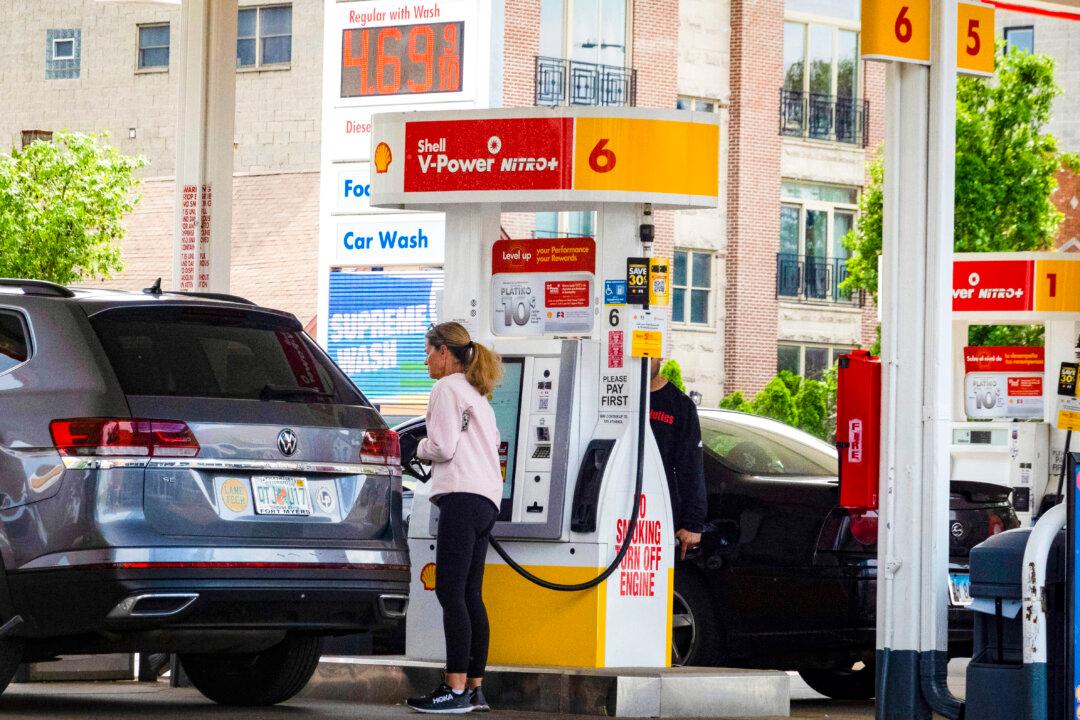
The federal government completed the sale of 1 million barrels of gasoline from the Northeast Gasoline Supply Reserve (NGSR), the White House said in a statement shared with The Epoch Times on Tuesday.
After receiving 19 proposals from five companies since May 21, the federal government awarded contracts to all the firms: BP (500,000 barrels), Vitol (200,000 barrels), Freepoint Commodities (100,000 barrels), George E. Warren (100,000 barrels), and Irving Oil (98,824 barrels).
Gas reserves were sold at an average $2.34 per gallon.
Senior administration officials touted the news as another victory for the federal government’s inflation-fighting efforts.
“The Biden-Harris Administration continues to take strategic action to lower prices for American consumers in every aspect of their lives—especially as summer driving season ramps up,” said Energy Secretary Jennifer Granholm. “By releasing this reserve ahead of July 4th, we are ensuring sufficient supply flows to the northeast at a time hardworking Americans need it the most.”
But while gasoline prices have not rocketed this summer, the White House is trying to build on the plethora of measures to reduce energy costs, says National Economic Advisor Lael Brainard.
“Gas prices have come down nearly 20 cents in the last two months, but we know there is more to do,” said Ms. Brainard. “This release will help lower prices at the pump, building on other actions by President Biden, including historic releases from the Strategic Petroleum Reserve, record energy production, and the largest-ever investment in clean energy.”
The cost of gas could start ticking higher because of the jump in crude oil prices.
U.S. crude topped $83 a barrel on the New York Mercantile Exchange during the July 1 trading session. Year-to-date, the West Texas Intermediate crude oil benchmark is up about 17 percent.
Oil prices have cooled since the end of April, but the revival of geopolitical tensions, investors bracing for the Federal Reserve to cut interest rates, an active hurricane season, and tight international energy markets have bolstered oil prices in recent sessions.
“Summer got off to a slow start last week with low gas demand,” said AAA spokesperson Andrew Gross. “But with a record 60 million travelers forecast to hit the road for the July 4th holiday, that number could pop over the next 10 days. But will oil stay above $80 a barrel, or will it sag again? Stay tuned.”
Tapping Into Reserves
In 2012, President Barack Obama created the Northeast Gasoline Supply Reserve following Hurricane Sandy, which destroyed refineries in the region.Recent EIA figures revealed domestic gas inventories totaled 233.886 million barrels for the week ending June 21, down more than 3 percent from the same period three years ago.
Additionally, following Russian President Vladimir Putin’s invasion of Ukraine, President Biden tapped into the nation’s emergency oil stockpiles to curb prices, drawing down 180 million barrels of oil. The White House estimates this trimmed gas prices by about 80 cents.
The SPR is approximately 40 percent lower than in January 2021. Since hitting a bottom of 346.758 million barrels in July 2023, the U.S. government has been gradually refilling reserves. As of June 21, the SPR was 372.197 million barrels, the highest since December 2022.
The White House has repeatedly shifted its position to replenish the SPR.
However, Ms. Granholm told Reuters in a June 28 interview that the administration could rush offers to replenish U.S. reserves beyond a 3-million-barrel-a-month pace.
“It could pick up more than that,” she said, adding that two SPR locations in Louisiana and Texas have been in maintenance. “All four sites will be back up by the end of the year, so one could imagine that pace would pick up, depending on the market.”
The federal government established the Strategic Petroleum Reserve in 1975 in response to the 1973–1974 oil embargo. The purpose was to limit the impact of disruptions in global petroleum markets. Officials could withdraw from the SPR during emergencies, energy interruptions, or supply troubles.
The world’s largest economy consumes about 20 million barrels of oil per day, meaning current reserves would be exhausted in 18 days if production ceased.
Monday, July 1, 2024
FCC Proposes Carriers Unlock All Phones Within 60 Days
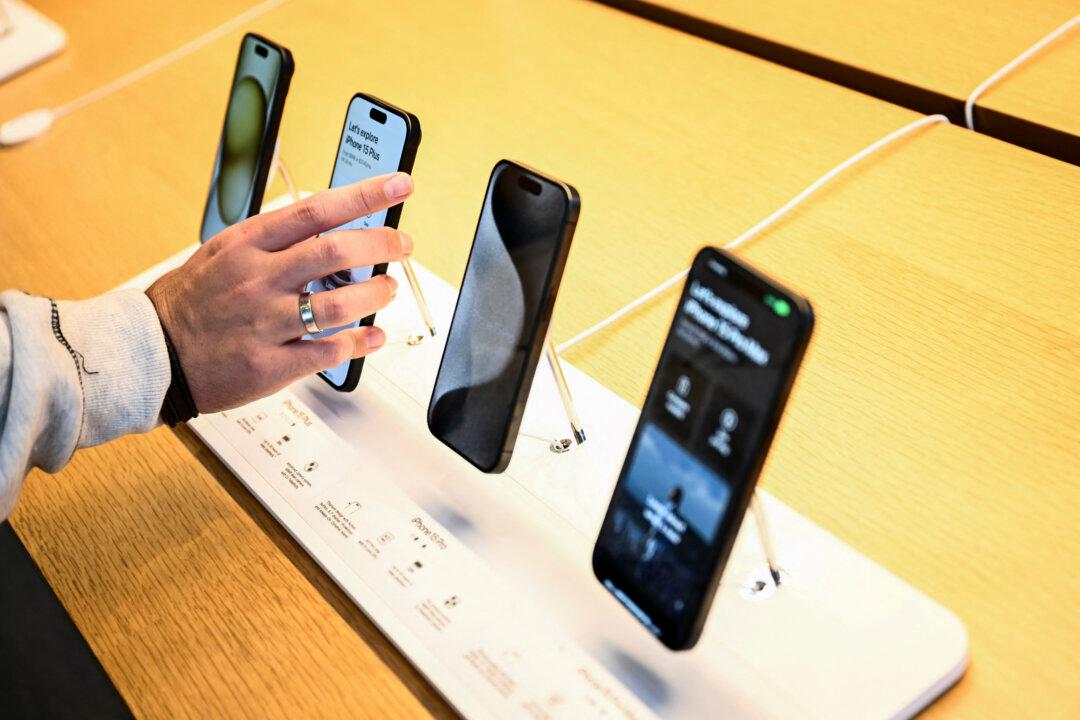
https://www.theepochtimes.com/us/fcc-proposes-carriers-unlock-all-phones-within-60-days-5678082
Cellphone service carriers would have to unlock customers’ cellphones within 60 days after activation, under a new proposal issued by the U.S. Federal Communications Commission (FCC) on June 27.
“New unlocking rules would allow consumers the freedom to take their existing phones and switch from one mobile wireless service provider to another more easily, as long as the consumer’s phone is compatible with the new provider’s wireless network,” the agency said in a statement.
Some cellphones come with software that prevents the device from being used on different mobile networks. This software restricts the phone to the network provider selling the device. Unlocking the phone allows consumers to use different mobile networks.
The FCC said that the unlocking of phones also opens the door to increased competition in the wireless services market, gives consumers more flexibility when switching service providers, increases competition by reducing consumers’ switching costs, and reduces customer confusion by applying the same unlocking rules to all mobile service providers.
FCC Chairwoman Jessica Rosenworcel said, “When you buy a phone, you should have the freedom to decide when to change service to the carrier you want and not have the device you own stuck by practices that prevent you from making that choice.”
Providers tend to lock mobile phones to their network as the devices are sold at a discounted price. In exchange, buyers are required to commit to a network plan, typically lasting months or years. These agreements also carry an early termination clause mandating a penalty if the deal is ended before the expiry of the commitment period.
“An unlocking requirement may discourage a carrier from deeply discounting a phone because it cannot recoup its subsidy if a customer immediately moves to another carrier,” Verizon said at the time.
“Providers rely on device locks to sustain their ability to offer such subsidies. Device locking periods, in fact, may greatly benefit low-income consumers because they make devices more affordable, lowering the barrier to entry to mobile service.”
The proposal will also seek public comments on the impact of the 60-day unlocking rule on service providers’ incentives to offer discounted phones.
T-Mobile Deal
Phone unlocking was a key issue in the recently concluded acquisition of Mint Mobile by T-Mobile. The deal was announced in March last year, with T-Mobile putting up $1.35 billion to acquire Ka’ena Corporation, which owned Mint Mobile and other brands. The deal was completed on May 1, 2024.Locking phones not only makes it more difficult for consumers to change carriers but also reduces the number of devices available in the secondary market, the groups argued. Smaller carriers and new entrants can be disadvantaged in the marketplace due to a lack of handset availability, the letter said.
“Locked phones, particularly those tied to pre-paid plans, can disadvantage low-income customers most of all, since they may not have the resources to switch carriers or purchase new phones. Unlocked phones also facilitate a robust secondary market for used devices, providing consumers with more affordable options.”
Back in 2014, the CTIA, which represents the U.S. wireless communications industry, adopted six standards for mobile device unlocking.
One policy states that carriers, upon request, will unlock mobile wireless devices or provide the information required to do so once the contract period under which the device was purchased ends.
The FCC advises people who are looking to unlock their phones to speak with their service provider to find out their eligibility.
If you found this article interesting, please consider supporting traditional journalism
Our first edition was published 24 years ago from a basement in Atlanta. Today, The Epoch Times brings fact-based, award-winning journalism to millions of Americans.
Our journalists have been threatened, arrested, and assaulted, but our commitment to independent journalism has never wavered. This year marks our 24th year of independent reporting, free from corporate and political influence.
That's why you're invited to a limited-time introductory offer — just $1 for 6 months — so you can join millions already celebrating independent news.

